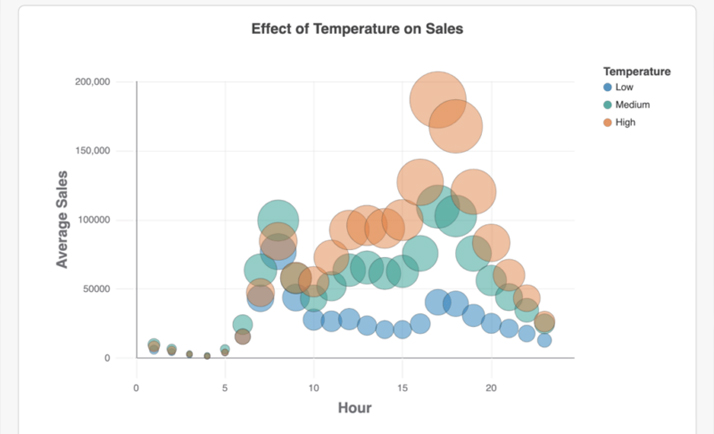Democratizing data analytics

DataChat makes it easy for companies to identify trends, find solutions
Businesses today have the ability to collect reams of data—but analyzing that data is not always simple. A Madison company, DataChat, is trying to change that.
DataChat started as a research project at the University of Wisconsin-Madison in 2017, as the demand for data scientists had begun to surge. “It takes years and years of experience to become a data scientist. You need education and training before you can accomplish that wizardry,” says Jignesh Patel, co-founder and CEO of DataChat. (A Harvard Business Review article has called data scientist “the sexiest job of the 21st Century,” and the U.S. Bureau of Labor Statistics predicts a 36% growth in employment of data scientists from 2021 to 2031.)
Patel’s goal was the reverse: to make it easier for anyone at a company to seek answers to detailed questions in simple language, especially for smaller businesses that can’t afford to hire a pricey data scientist.
Simplifying access to big data
A data science program that analyzes big data consists of a series of blocks of code, and the common way to build it is one block at a time. For each block, you use a search engine to find out how other programs have dealt with similar questions. Then you discover their code, make your own adjustments, and repeat until you reach the results you need. Each block and each step take a long time to test and resolve, and each new block must communicate and coordinate with the others.
Patel’s team aimed for a faster process with a higher level of automation. “It was a pipe dream. Most people said we were nuts,” he says. “But my Ph.D. students and I were firm believers. We kept going at it.”
It took until 2022 for DataChat to develop the final piece of the puzzle. “We use artificial intelligence to help understand the intent in your question and big data to understand the semantics—and we marry them together to do this,” Patel says. For example, DataChat’s tools can analyze sales data—as specific as how weather or time-of-day affect sales—as well as predict inventory needs, find efficiencies, and pinpoint device failures. They can identify trends, draw charts, and create predictive models. All of this, in response to questions written in common English. “It democratizes data. Anyone can do it,” Patel says. “It empowers people in your organization, improves the speed of decision-making, and gives you a competitive advantage.”
Drawing West Coast and global investors
DataChat has 35 employees, many of them in Madison and many of them UW graduates. The company has raised nearly $30 million, with its last round led by Anthos Capital, of Menlo Park, CA, and Redline Capital, of London, along with the original investments from Celesta Capital, of San Francisco, and Nepenthe Capital, of Cupertino, CA.
Long-term investors include the National Science Foundation’s America’s Seed Fund and the Wisconsin Alumni Research Foundation (WARF). DataChat has also received two Small Business Innovation Research awards and is part of WEDC’s Qualified New Business Venture Program. WARF holds one of the company’s patents, while DataChat has about five more patents in its own name. The Tech Tribune lists DataChat as one of the 2022 Best Tech Startups in Wisconsin, and the company is one of StartupBeat’s 2023 15 AI Startups to Watch.
Patel has had previous success with technology startups. A serial entrepreneur, Patel founded and sold three previous companies: Quickstep Technologies was purchased by Pivotal Software; Locomatix by Twitter; and Paradise by NCR. His goal for DataChat is that it becomes the gold standard for self-serve data analytics. “Our ambition is to be everywhere. The scope of the technology is pretty vast. We think it’s something that every company can use,” he says.


